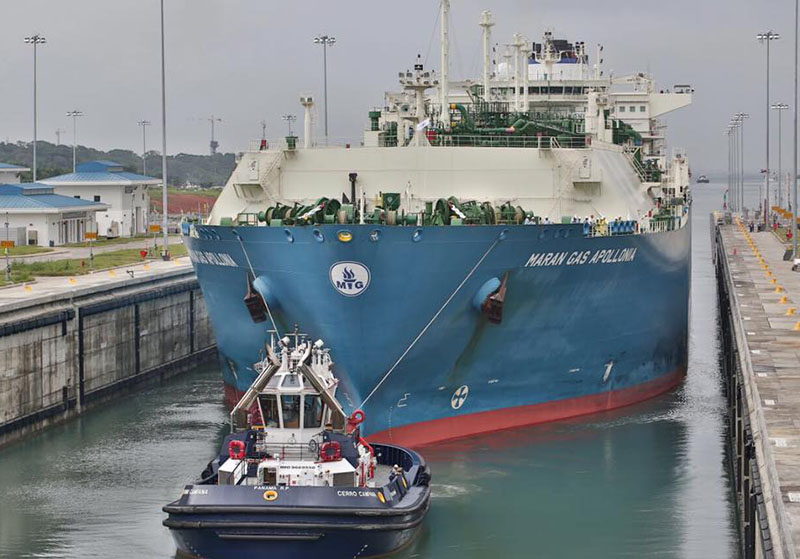The shale gas revolution in North America and the search for diverse and secure energy sources has put U.S. LNG exporters in a commanding position, abetted by historic low prices and the newly expanded Panama Canal.
“We are witnessing a fundamental shift in global and regional energy markets,” said David Kornayi, director of the Eurasian Energy Futures Initiative at the Atlantic Council.
The venerable Washington, D.C., non-profit, founded in 1961 to support the Atlantic alliance, hosted a panel Thursday for the book launch of "The Futures of Natural Gas: Markets and Geopolitics," a study of the fuel’s production, consumption and trade on a global level by 19 contributors.
The authors recognize that natural gas is “a politicized resource” that producing states can wield as an instrument of national power, as Russia has demonstrated, said author Nicolo Satori, a researcher in security, defense and energy at Italy’s Istituto Affari Internazionali. The book examines how the expanding global gas supply may reduce uncertainty for consuming nations, he said.
European Union nations import 66% of their natural gas and some are utterly dependent on Russia – a perilous position as first demonstrated in 2009 when they were drawn into a pricing dispute between Russia and Ukraine that resulted in pipeline shutdowns. In 2014 the European Commission drafted an energy security strategy, calling for efficiency, renewable energy and diversifying fossil fuel sources.
Japan, the foremost importer of liquefied natural gas, is likewise searching for more secure sources after settling for cheap energy to make up for nuclear shutdowns after the 2011 Fukushima Daiichi reactor disaster. About two-thirds of those LNG shipments have some through the South China Sea, now rife with tensions between China and its neighbors, noted Jane Nakano, a senior fellow in energy and national security at the Center for Strategic and International Studies.
“The shale revolution in the U.S. could not come at a better time for Japan,” Nakano said. While China wants more gas to reduce its dependence on coal with Russian gas, Japanese energy companies are much more cautious about committing to Russian supplies. They can buy from Australia and U.S. exporters with a range of options “that no other supplier is able to offer,” she said.
“I think we’re going to see competition in Asia, and particularly China,” said Bud Coote, resident senior fellow with the Atlantic Council’s Global Energy Center. Recently retired as the leading international energy analyst at the Central Intelligence Agency, Coote was not among the study’s authors but called it a “very good” summation of likely futures.
Coote said he can foresee Russia trying to underprice competitors to stake its claim in Asian markets. That would be turnaround on U.S. LNG producers, whom have helped undercut Russian prices to Europe since the 2009 crisis. The Russian state gas producer Gazprom is adjusting somewhat to that competition – gas prices that were $5 per million BTUs end-of-the-pipe at the German border in January were down to $4 in May, and around $4.25 this month, Coote said.
But “at the same time Gazprom is trying to press advantages by other means” including political and military pressures the Russian government can exert, he said.
While renewable energy targets are a big part of Europe’s security and environmental strategy, the panelists said they do not see wind and solar commitments restraining investment in natural gas.
“I don’t personally see a strong correlation,” said Satori, adding that Germany is looking to natural gas to reduce its dependence on coal, and Italy is already building natural gas generation.
The future of international gas markets depend on “the degree to which governments embrace natural gas as a transitional fuel,” with lower carbon emissions, Coote said. “I don’t think we’ve seen the momentum that some of us would have expected…but it’s still early.”





